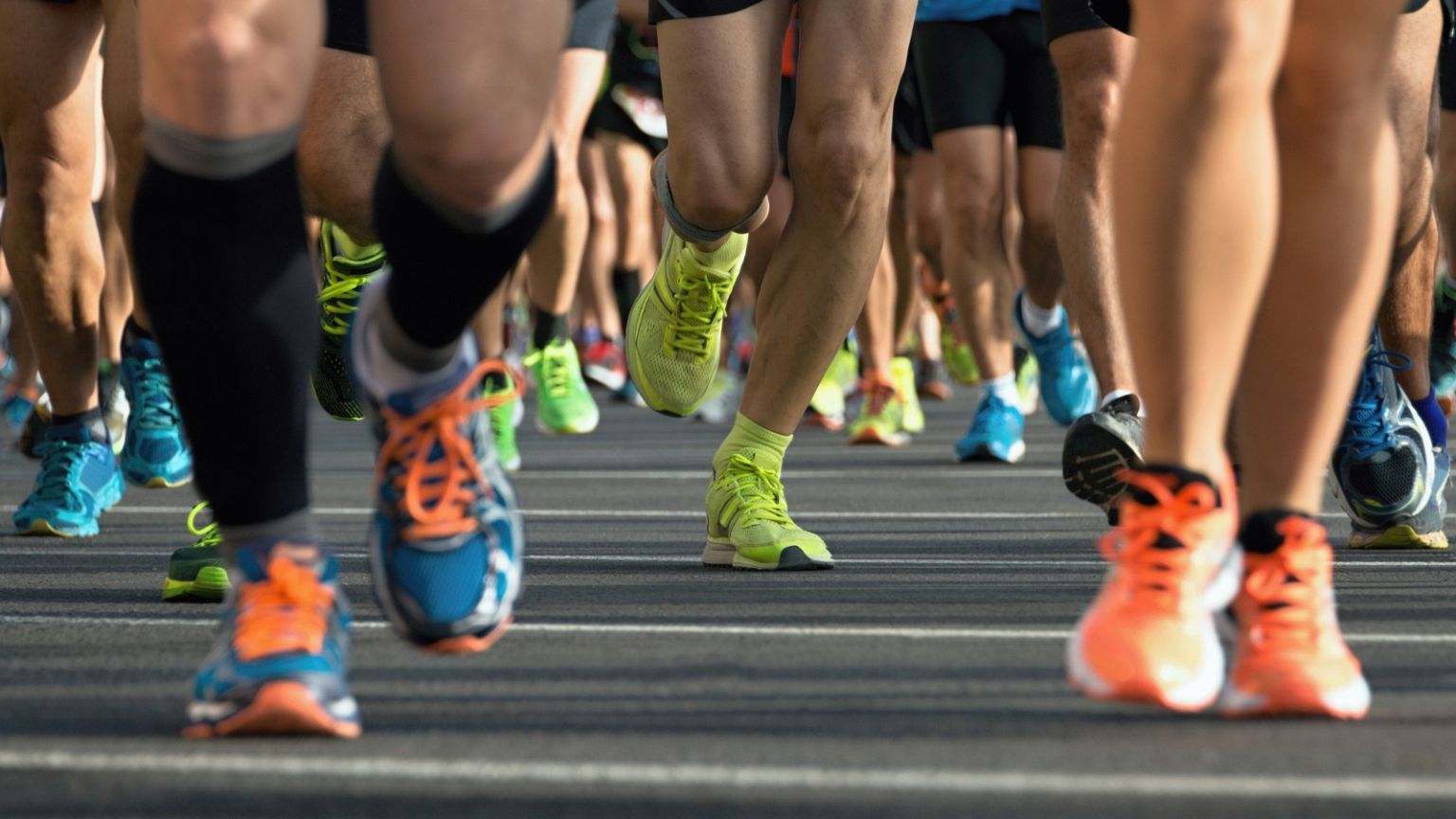Marathon season across Europe is well and truly upon us. On Sunday, key players on the continent and beyond will be closing down their cities so hundreds of thousands of runners can take months’ worth of training to the streets; whether they’re looking for a personal best, a new medal to hang in their hallway or just to be able to say they were there. While events like the Paris Marathon and Vienna Marathon have already taken place, cities including London and Manchester will be shutting down their main roads this weekend so that runners - from the elite to the everyday jogger - can chase that coveted 42.
2 km. Safe to say, it’s a long old slog running a marathon whatever your ability level. But what exactly does the physical challenge do to your mind, body, and - if it doesn’t feel a stretch too far to add - soul? Several suggest you can lose up to half an inch throughout the course of a marathon (don’t panic though, gentlemen, this is purely spinal cord-related).

It’s believed this is due to a number of factors, including muscle tension and losing fluid between your spinal disks. And on that note..
. If you hop on the scales in the immediate aftermath of a marathon, the likelihood is you’ll be lighter after having sweat out of water in the hours before. Organised marathons have regular pit stops to top up on the H2O, and you should absolutely make the most of them.
Staying hydrated throughout will not only minimise the risk of feeling nauseous and faint during the run, but can also aid muscle recovery in the longer term. Running one marathon could burn up to 3,500 calories, depending on your body stats, age and fitness level. That’s why carb-loading the night before has become a ready to tackle long distances.
While you’re running, your body uses two main energy sources to keep you powering on: fats and carbohydrates. The latter are fast-acting sources of energy that don’t take too long for your body to break down, which is also why running staples like energy gels are a popular option for a mid-race boost, to replenish your depleted stores while you run. Remember kilometre 25 when the only thing getting you through the next 17 was the thought of all the food you’d be able to eat once it was over? Don’t be shocked if the last thing you want to do for the next few hours is eat.
behind this is the effect that exercise - specifically, intensive exercise - can have on our body. There’s a huge blood flow increase to the heart and legs - and while our bodies are concentrating on that, it shuts down less essential functions, for example suppressing hormones including ghrelin - aka the “hunger hormone”. You’ve likely just completed one of the most physically draining experiences of your life - so why can’t you sleep? There are a couple of reasons for this.
One: cast your mind back to the adrenaline rush when you crossed that finish line. You’re essentially riding out a major high, with an elevated heart rate, endorphin spike, and major energy rush to combat. Secondly, you’ve just put your body under an immense amount of stress.
Cue first responder, our fight-or-flight hormone cortisol, which is most likely also off the charts in the immediate aftermath of a run. Of course, everyone’s bodies respond differently to the physical and mental challenge of marathon running - but if you are struggling to sleep, these factors might help explain why. We can probably all anticipate struggling to walk up and down stairs during the days following a marathon, but what about bleeding nipples, chafing in places you never thought could chafe, and the potential loss of toenails? Running is, after all, nothing if not a sexy sport.
You might find for the next few days or so - especially if your sleep has left the building - you feel in quite a low mood. This is a completely normal response as your body works to regulate itself to a pre-marathon state. It’s essentially an anti-climax.
If the past few months of your life have revolved around weekly training sessions and fuelling your body to carry you through long-distance running, you can imagine a sudden stop might result in a sense of displacement and lack of purpose. You’re also essentially on a comedown from a huge sense of accomplishment. Once the buzz is over, it’s not surprising to find yourself on a bit of a low.
.
Health

What happens to your body when you run a marathon? 7 things you need to know

Marathon season is upon us - but what actually happens to you when you set off to complete the coveted 42.2km race?















